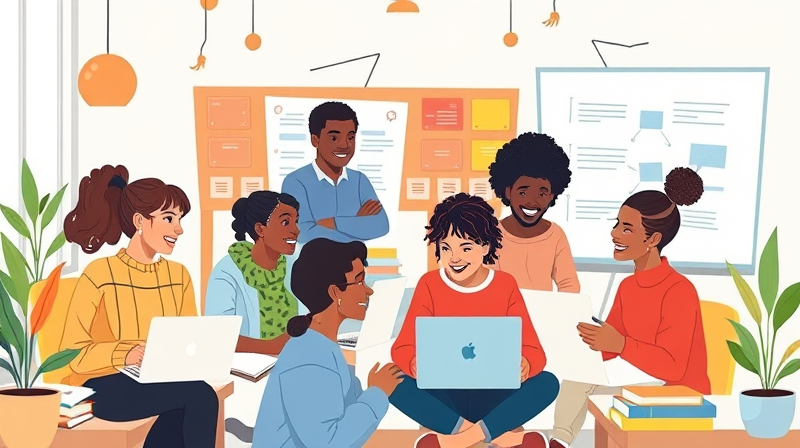Learning a new language can be one of the most rewarding challenges you ever take on, and the amazing part is that you can start right from the comfort of your own home. In today's connected world, there are countless resources available that empower you to work at your own pace, tailor your learning experience, and immerse yourself in a new language no matter where you are. The journey might seem daunting at first, but with dedication and the right strategies, you can achieve fluency and even enjoy the path along the way.
This guide shares some introductory pointers to help you develop efficient language learning habits, achieve steady progress, and ultimately reach your linguistic goals. Whether you’re interested in preparing for travel, adding a new skill to your professional repertoire, or simply expanding your personal horizons, each tip is designed to inspire and motivate you.
Customize Your Learning Experience
Every language learning journey is unique. It all begins with understanding what you want to achieve. Identify the purpose behind your study—whether it's to converse fluently with native speakers, learn specialized vocabulary for your career, or gain cultural insights through language nuances.
Customize your program by choosing tools that cater to your specific needs. Numerous apps such as Babbel and Duolingo let you craft your study plan around your personal interests and goals. By focusing on what matters most to you, the process becomes more intuitive and less overwhelming.
- Set clear objectives: Define your purpose and milestones.
- Select platforms that suit your style: Explore various language apps and websites.
- Revise and adjust: Monitor your progress and revise goals as needed.
This approach not only accelerates your learning pace but also keeps you engaged and motivated. When every lesson serves a clear purpose, your study sessions become more productive and inspiring.
Build a Strong Foundation
Starting with the basics is essential in building a strong foundation. Learn key phrases, the most frequently used words, and fundamental grammar rules that form the basis of everyday conversation. By mastering these early on, you equip yourself with the tools necessary to expand your vocabulary gradually.
Consistency in practice is key. Set aside a few minutes each day for focused learning sessions that allow repetitive reinforcement of new words and grammar concepts. Gradually, these building blocks form a sturdy platform from which more advanced skills can flourish.
The early stages might seem slow, but when you focus on simple, everyday dialogue, your ability to communicate begins to improve naturally over time.
Immerse Yourself in Real-World Language
One of the most effective ways to truly learn a language is by exposing yourself to how it is actually spoken in everyday settings. Rather than relying solely on textbooks and apps, delve into real-world content such as movies, TV shows, podcasts, and music. This approach not only refines your pronunciation but also introduces you to the rhythm, intonation, and cultural nuances intrinsic to the language.
Digital tools with voice recognition capabilities can further assist by allowing you to practice speaking and get immediate feedback. Simulating real-life conversations and hearing native speakers in action can significantly boost your overall fluency.
Incorporate Daily Practice and Immersion Techniques
Incorporating language learning into your daily routine can lead to incredible progress. By dedicating at least 15 minutes each day exclusively to language study, you develop habits that foster continuous improvement. Whether it's through vocabulary drills on flashcard apps or short conversations with language partners, every moment spent is a step towards fluency.
One simple trick is to adjust the language setting on your devices. This change acts as a constant reminder of your goals and offers small pockets of passive learning throughout your day. Every interaction with your phone or computer becomes an opportunity to learn.
Embrace Technology and Self-Confidence
The digital world is brimming with tools specifically designed to help language learners succeed. From comprehensive courses to interactive exercises on platforms like LingQ and Quizlet, technology provides the structure and resources you need. These platforms also allow you to track your progress, which is critical in ensuring that you stay motivated.
Equally important is overcoming the fear of making mistakes when speaking. Many learners are hesitant at first, but remember that every error is a learning opportunity. Practice speaking aloud, even if you are talking to yourself or reciting scripted dialogues until you feel comfortable enough to engage in real conversations. Building this self-confidence is as crucial as the technical skills involved in learning a new language.
Celebrate Your Progress
No journey is complete without acknowledging your achievements along the way. Whether it's the moment when you can watch a movie without subtitles or have your first conversation with a native speaker, these milestones are significant. Celebrate them as they represent tangible proof of your hard work and dedication.
Keep a journal or use an app to track your progress and revisit previous achievements from time to time. Recognizing how far you've come not only boosts your self-esteem but also ignites further passion for learning.
Remember, language learning is more than just acquiring new words; it’s about embracing a new culture, opening doors to global experiences, and transforming yourself in ways you never thought possible. Stay curious, keep challenging your boundaries, and enjoy every moment of the journey to fluency.








